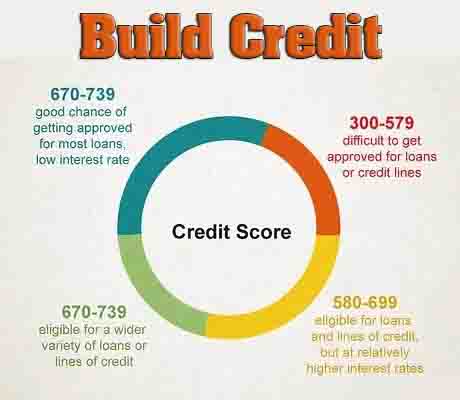How to build credit score in india?
How to build credit score in india? – Building credit is an essential part of financial stability and security. It is the process of establishing a credit history by using credit responsibly, which helps you qualify for loans, credit cards, and other financial products. A good credit history makes it easier to obtain credit at lower interest rates and with better terms, which can help you save money over time. In this article, we will explore the steps you can take to build credit and achieve financial success.
Step 1: Understand Your Credit Report
Before you can start building credit, you need to understand your credit report. Your credit report is a record of your credit history and includes information about your loans, credit cards, and other financial products. It also includes information about your payment history, account balances, and credit limits. You can obtain a free copy of your credit report from each of the three major credit reporting agencies (Equifax, Experian, and TransUnion) once a year. Reviewing your credit report will help you identify any errors or inaccuracies that may be affecting your credit score.
Step 2: Open a Credit Account
To build credit, you need to have credit accounts that you use responsibly. The most common types of credit accounts are credit cards and loans. If you don’t have a credit history, you may need to start with a secured credit card or a credit builder loan. A secured credit card requires a deposit that serves as collateral for your credit limit. A credit builder loan is a loan that is designed to help you build credit by making payments over a set period of time. Both of these options can help you establish credit and improve your credit score over time.
Step 3: Use Credit Responsibly
Once you have a credit account, it’s important to use credit responsibly. This means making payments on time, keeping your balances low, and avoiding overspending. Payment history is one of the most important factors that determines your credit score, so it’s crucial to make payments on time every month. Keeping your balances low also helps to improve your credit score, as high balances can negatively impact your credit utilization ratio. Ideally, you should aim to keep your balances below 30% of your credit limit.
Step 4: Monitor Your Credit Score
As you build credit, it’s important to monitor your credit score to track your progress and identify areas where you can improve. There are many free credit monitoring tools available that allow you to track your credit score and receive alerts when there are changes to your credit report. Monitoring your credit score can also help you identify potential fraud or identity theft, which can be addressed before it causes significant damage to your credit history.

Related Articles
Conclusion
Building credit is an essential part of achieving financial success. By understanding your credit report, opening a credit account, using credit responsibly, and monitoring your credit score, you can establish a strong credit history and qualify for better financial products in the future. With a little bit of effort and discipline, you can build credit and achieve your financial goals.
FAQs – Frequently Asked Questions
Q: What does it mean to “build credit”?
A: Building credit refers to the process of establishing a credit history by using credit responsibly. This involves opening a credit account, such as a credit card or loan, and making payments on time while keeping balances low. By doing so, you can establish a strong credit history, which can help you qualify for better financial products in the future.
Q: Why is it important to build credit?
A: Building credit is important because it can help you qualify for loans, credit cards, and other financial products at lower interest rates and with better terms. A strong credit history can also improve your chances of being approved for an apartment or a job, as many landlords and employers check credit reports as part of their screening process.
Q: How do I check my credit score?
A: You can check your credit score for free using a number of online services. Many credit card companies also offer free credit monitoring tools that allow you to track your credit score over time.
Q: How long does it take to build credit?
A: The length of time it takes to build credit depends on a number of factors, including your credit history, payment history, and credit utilization ratio. Generally, it takes at least six months of responsible credit use to establish a credit history.
Q: What are some tips for building credit?
A: Some tips for building credit include making payments on time, keeping balances low, monitoring your credit score, and avoiding opening too many credit accounts at once. It’s also important to check your credit report regularly to ensure that there are no errors or inaccuracies that may be negatively impacting your credit score.
Q: What is a good credit score?
A: A good credit score is typically considered to be 670 or higher. However, the specific credit score required to qualify for loans and credit cards varies depending on the lender or creditor. Generally, the higher your credit score, the better your chances of being approved for credit at lower interest rates and with better terms.
